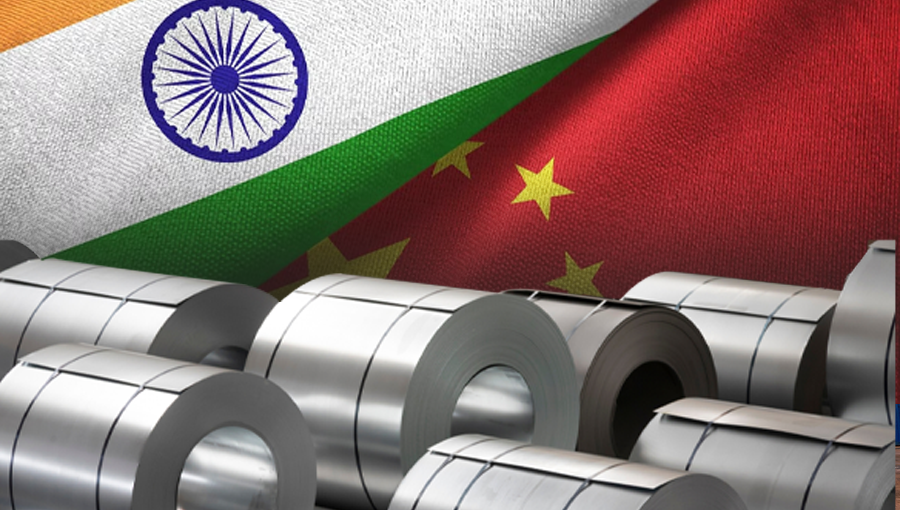India should connect to Chinese supply chain to promote manufacturing: Economic survey
Business
22 Jul 2024 04:07 PM IST
The Hindu BusinessLine
Chinese overproduction due to a demand-supply mismatch in the country is driving its companies to explore additional overseas markets, resulting in "global prices collapsing and driving other national producers out of business," particularly in product categories where China dominates, such as steel. Furthermore, its dominance results in "economic coercion" and monopolistic control over resources such as critical minerals, according to India's Economic Survey 2023-2024.
According to the study, India should "integrate itself into China's supply chain." It refers to the global slump in steel prices, which has pressured the sector in developing nations like India. “The poor performance of China’s property sector since 2021 created significant overcapacity, leading to a collapse in global steel prices, which now puts significant pressure on producers in India, Vietnam, Brazil, and other countries,” the survey stated.
China’s manufacturing trade surplus has ballooned since 2019 due to weak domestic demand and expanding industrial capacity. The mismatch between domestic supply and demand has widened in recent years, leading Chinese companies to explore additional markets overseas.
Estimates show that China’s steel product exports are surging again, up 27% so far in 2024 and 35% in 2023. China’s dominance in many product categories “creates a risk of economic coercion,” where the government restrains access to crucial inputs for political leverage. This is most evident in the export of rare earth and critical minerals, which are of high priority in green transition efforts.
China’s dominance also led to monopolistic practices, restricting the emergence of newer manufacturing powers. This, in turn, has impacted and constrained manufacturing activities and sectors in emerging markets and developing economies (EMDEs).
The Rhodium Group, in its study, observes that the “Chinese government can encourage companies to partner together, merge and consolidate, coordinate to gain market shares, raise prices, restrict access to products where they already have substantial market power, or favour domestic firms in their suppliers and client networks”.
While China still needs to import high-tech products from rich industrialised economies, it also imports very low-tech goods, where developing countries would have a comparative advantage. While EMDEs are resorting to import restrictions against China, it must also be noted that some Chinese goods are so cheap that no tariff can reduce their price competitiveness. Chinese products can move past these restrictions unnoticed since they are packaged in third countries.
Meanwhile, China has started retaliating against import restrictions, further complicating the manufacturing landscape for EMDEs. The survey mentioned that China has been quietly blocking India’s access to solar equipment in response to India's anti-dumping probe against Chinese entities.
“To boost Indian manufacturing and plug India into the global supply chain, it is inevitable that India plugs itself into China’s supply chain,” the survey states. This can be done by “relying solely on imports or partially through Chinese investments” — a choice that India has to make.
Incidentally, countries like Brazil and Turkey have explored options where, on the one hand, they have increased tariffs on select Chinese offerings like e-vehicles while also attempting to attract Chinese FDI in select sectors.
